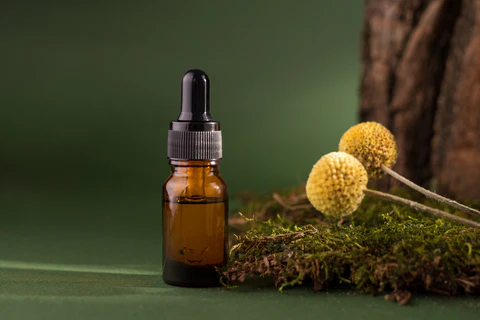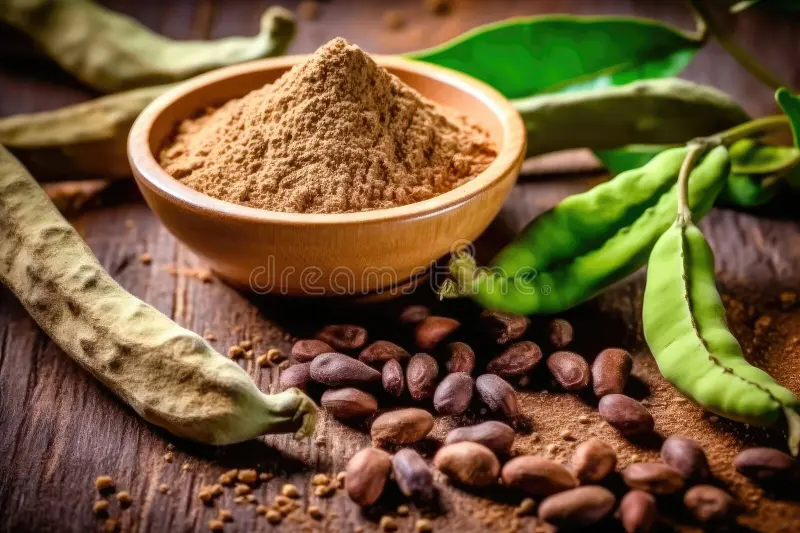
Premenstrual Dysphoric Disorder (PMDD) can be an overwhelming and debilitating condition, impacting every aspect of a woman’s life. As a more severe form of premenstrual syndrome (PMS), PMDD often presents with intense emotional and physical symptoms that can be challenging to manage through conventional treatments alone. In my journey to alleviate PMDD, I discovered the transformative power of a holistic approach. This method not only helped me find relief but also offered a sustainable path to wellness that addresses the root causes of the condition.
Through a combination of dietary adjustments, lifestyle changes, and natural remedies, I was able to significantly reduce the symptoms of PMDD. This article explores the steps I took to combat this disorder naturally, providing insights and practical advice for others seeking similar relief. By adopting a holistic approach, I was able to reclaim my health and well-being, proving that there is hope beyond traditional treatments.
Read Also:
- Herbs to Reduce Stress and Anxiety: Natural Solutions for a Calmer Mind
- Natural Cough Suppressants: Herbal Treatments to Calm a Persistent Cough
- Natural Remedies for Inflammation: How to Reduce Pain and Swelling Naturally
- Kalms Tablets: Do These Herbal Sleep Aids Really Work?
- Natural Antibiotics for Tooth Infections: Can Herbs Replace Antibiotics?
- Natural Remedies for Eczema: Herbal and Lifestyle Changes for Clearer Skin
- Herbal Treatments for Vaginal Dryness: Natural Solutions for Comfort
- The Ultimate Guide to Natural Sleep Remedies for Deep, Restful Sleep
- Herbal Remedies for Menopause Symptoms: Cooling Hot Flashes and More
- How I Cured My PMDD Naturally: A Holistic Approach
- The Ultimate Guide to Gut Health: How It Impacts Your Immune System, Mood, and Overall Wellness
- How to Create Balanced Meals: The Essential Role of Macronutrients and Micronutrients
If you’re struggling with PMDD and are looking for natural ways to manage your symptoms, this guide will offer valuable strategies and actionable steps that you can incorporate into your daily routine. Embracing these methods might not only help you alleviate PMDD but also improve your overall quality of life.
Dietary Adjustments for PMDD Relief
Balancing Your Nutrients
To effectively manage PMDD, it’s crucial to maintain a balanced diet rich in essential nutrients. This means incorporating a variety of fruits, vegetables, lean proteins, and whole grains into your meals. Foods high in magnesium, such as spinach, nuts, and seeds, can help reduce symptoms of PMDD by promoting relaxation and lowering stress levels. Additionally, omega-3 fatty acids found in fish like salmon can help balance mood and reduce inflammation.
Avoiding Trigger Foods
Certain foods can exacerbate PMDD symptoms, so it’s beneficial to identify and avoid these triggers. High sugar and caffeine intake, for example, can lead to mood swings and increased irritability. Similarly, processed foods high in salt can contribute to bloating and water retention. Keeping a food diary to track your symptoms and dietary intake can help you pinpoint which foods may be affecting you and allow you to make more informed dietary choices.
Incorporating Herbal Supplements
Herbal supplements can play a supportive role in managing PMDD symptoms. For instance, chaste tree (Vitex agnus-castus) has been shown to balance hormones and alleviate symptoms such as mood swings and irritability. Similarly, evening primrose oil, rich in gamma-linolenic acid (GLA), can help with breast tenderness and emotional symptoms. Always consult with a healthcare provider before starting any new supplement regimen.
Lifestyle Changes for Managing PMDD
Regular Exercise
Incorporating regular physical activity into your routine is a powerful way to manage PMDD symptoms. Exercise helps to release endorphins, which can improve mood and reduce stress. Aim for at least 30 minutes of moderate exercise, such as walking, swimming, or yoga, most days of the week. Additionally, strength training exercises can help with mood stabilization and overall well-being.
Stress Management Techniques
Stress can significantly worsen PMDD symptoms, so finding effective ways to manage stress is essential. Techniques such as mindfulness meditation, deep breathing exercises, and progressive muscle relaxation can help reduce stress and improve emotional resilience. Integrating these practices into your daily routine can help you better cope with the emotional challenges of PMDD.
Improving Sleep Quality
Adequate sleep is vital for managing PMDD, as poor sleep can exacerbate symptoms such as irritability and fatigue. Establish a consistent sleep schedule by going to bed and waking up at the same time each day. Create a restful environment by minimizing noise and light and avoiding screens before bedtime. Practices such as a relaxing bedtime routine or herbal teas like chamomile can also promote better sleep.
Natural Remedies for PMDD Relief
Acupuncture
Acupuncture is a traditional Chinese medicine practice that involves inserting thin needles into specific points on the body. This technique can help balance hormones and alleviate symptoms of PMDD. Research has shown that acupuncture can be effective in reducing emotional and physical symptoms, making it a valuable tool in a holistic approach to PMDD.
Essential Oils
Essential oils, such as lavender and peppermint, can provide relief from PMDD symptoms through aromatherapy. Lavender oil is known for its calming properties, which can help reduce anxiety and promote relaxation. Peppermint oil, on the other hand, can help alleviate headaches and digestive issues associated with PMDD. Use these oils in a diffuser or dilute them with a carrier oil for topical application.
Hydrotherapy
Hydrotherapy, or the use of water for therapeutic purposes, can be beneficial in managing PMDD symptoms. Warm baths with Epsom salts can help soothe muscle tension and reduce bloating. Additionally, alternating between hot and cold showers can improve circulation and alleviate fatigue. Incorporating hydrotherapy into your routine can offer a soothing and effective method for symptom relief.
Emotional and Mental Well-being
Counseling and Support Groups
Addressing the emotional impact of PMDD is crucial for overall well-being. Seeking counseling or participating in support groups can provide valuable emotional support and coping strategies. Talking to a mental health professional can help you work through the psychological aspects of PMDD and develop effective ways to manage stress and emotions.
Journaling and Self-Care
Journaling can be a therapeutic way to process your feelings and track your symptoms. Regularly writing about your experiences can help you identify patterns and triggers, allowing you to make more informed decisions about your management strategies. Additionally, practicing self-care, such as engaging in hobbies or taking time for relaxation, can contribute to improved emotional health.
Mind-Body Connection
Building a strong mind-body connection through practices such as yoga and tai chi can enhance overall well-being and reduce PMDD symptoms. These practices emphasize mindfulness and gentle movement, helping to improve emotional balance and physical health. Incorporating these practices into your routine can provide long-term benefits for managing PMDD.
Conclusion
Finding relief from PMDD through natural methods can be a transformative journey. By making dietary adjustments, adopting a healthy lifestyle, and incorporating natural remedies, you can effectively manage your symptoms and improve your quality of life. The holistic approach I used not only helped me alleviate PMDD but also empowered me to take control of my health in a meaningful way.
If you’re struggling with PMDD, consider exploring these natural strategies and see how they can work for you. Remember, finding the right combination of techniques may take time and experimentation, but the benefits of a holistic approach can be profound and lasting.








